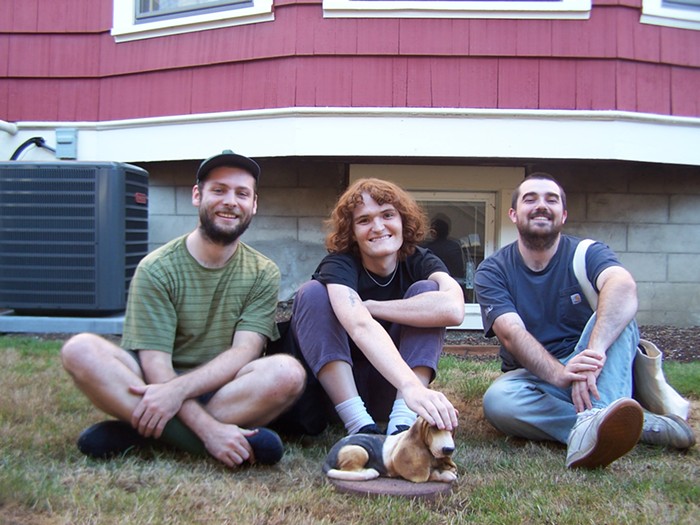WITH A CAREER spanning four decades, the work of musician and multimedia artist Genesis Breyer P-Orridge has evolved to include many forms of expression, and is perhaps best known for the metaphysical philosophy Pandrogyne. In short, it's a direct rejection of society's concepts of gender in favor of something more neutral and all encompassing. (P-Orridge prefers the pronoun s/he.)
To put this into practice, P-Orridge and her/his partner Lady Jaye underwent body modification, surgeries, and rituals in order to resemble each other in the material flesh, while considering themselves a single entity and making their conjoined lives an artwork of its own. This philosophy was illustrated in the 2011 documentary The Ballad of Genesis and Lady Jaye, and is a discipline that P-Orridge has kept expanding upon after Lady Jaye's tragic death in 2007.
Although life itself has become an art project, it hasn't overshadowed P-Orridge's long career in music. First as a member of pioneering industrial group Throbbing Gristle, then as leader of the influential psychedelic post-punk band Psychic TV (sometimes referred to as PTV3), P-Orridge has functioned as a cultural engineer who seeks to reveal the true nature of reality hidden beneath deeply ingrained and often limiting societal constructs. With dozens of Psychic TV albums since 1982 and several films and documentaries, it's easy to wonder where such a rich and challenging body of work—one that has captured the heart of alternative culture for so long—came from.
"It's a kind of channeling," P-Orridge explains. "It's a state of openness that is so exquisite that you are not thinking at all. You become a witness to this evolving out of your mouth... it's no longer me constructing it as such; it's me watching it be constructed."
S/he reveals that it all began in the swinging '60s in Britain. "We started to read the underground press, [which] led us into an extended view of alternative reality, if you like—the real history of the world. We used sensory deprivation tanks and dream machines... everything we could find that hinted at the ability to skip out of the nonsense that is reality and explore other planes, parallel types of existence. And it just convinced us that there are more things in heaven, earth, and everything else than people have dreamed of, and that the human species has been deliberately disconnected from aspects of it by those addicted to power and control."
Those themes of transcending earthly reality resonate in Psychic TV's 2014 album, Snakes, a straight-ahead exploration of psychedelic space rock, with lyrics about voodoo culture in Africa. This connection came about from P-Orridge's participation in an upcoming documentary, Bight of the Twin, which searches for the origin of Vodun (Voodoo) in the city of Ouidah in the West African nation of Benin. In a quest to reveal the hidden truths of existence, magick, and the occult are recurring themes for Psychic TV.
"We truly do believe that the either/or universe is just unworkable and probably always was," says P-Orridge, "and so we spent time looking at and exploring other cultures to [find out] what is the mother story. What is the earliest story of the creation myth and does it tell us something that's being forgotten?"
P-Orridge continues, "The real battle on this planet for the last 2,000 to 3,000 years, and more than ever now, is a battle to reconnect with our potential, and to use life to try and comprehend life itself—and through that, to give back with compassion, understanding, kindness, and generosity. That is the job of the person who is creative, to try and bring into sharper focus the absolute necessity for change in human behavior—change [that] is liberating and not in any way constricting."



















